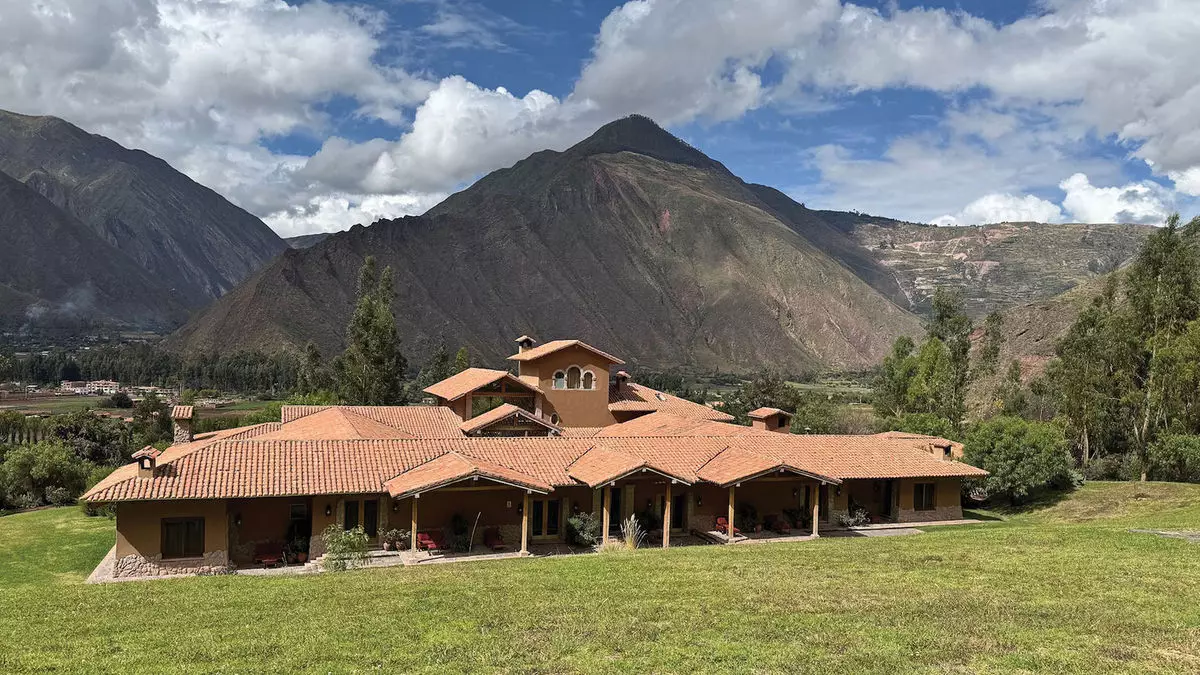In an era dominated by superficial tourism, authentic cultural experiences remain a rare gem that can profoundly shift our perspective. The ancient Andean practice of brewing chicha de jora exemplifies a tradition imbued with history, community, and resilience. Far from a mere beverage, chicha symbolizes centuries of indigenous ingenuity, passed down through generations. Engaging with such practices offers more than entertainment—it facilitates a deeper understanding of heritage, connecting us with the land, the people, and their stories.
Yet, it’s tempting to dismiss these traditions as rustic or outdated. However, a critical look reveals that cultural preserves like chicha-making serve as vital repositories of identity. They remind us that culture is not static but a living, breathing element that sustains communities amid modern challenges. Embracing such practices goes beyond curiosity; it’s an act of respect and acknowledgment of a history that deserves recognition and preservation. Engaging with them consciously enriches our worldview and fosters cross-cultural empathy, forging bonds that transcend language and geography.
Luxury Meets Sustainability: Rethinking the Paradigm of Tourism
The juxtaposition of opulent hotels like Hacienda Urubamba and Machu Picchu Pueblo Hotel with their deep roots in local culture challenges traditional notions of luxury. These properties demonstrate that comfort, elegance, and eco-consciousness are not mutually exclusive. Their architectural homage to colonial history, thoughtfully curated decor using local crafts, and organic farming practices underscore a conscientious approach to hospitality that values sustainability.
However, critics might argue that such experiences are still privileged, catering to affluent travelers and potentially commodifying culture. While this critique holds weight, it overlooks the transformative capacity of eco-luxury hospitality. These hotels act as custodians of cultural heritage while championing environmental stewardship. They support local economies through sourcing ingredients, employing artisans, and maintaining biodiversity. Their model invites a redefinition of luxury—one that prioritizes authenticity, sustainability, and purpose. By choosing such establishments, travelers endorse a future where tourism nurtures rather than harms cultural and ecological landscapes.
Authenticity as a Catalyst for Personal Growth
Traveling to places like Peru to witness or participate in traditional practices may seem daunting, even risky. The process of making chicha, for example, requires patience, precision, and respect for age-old methods. While the narrative cautions against attempting such activities at home, perhaps the real lesson lies in the willingness to immerse oneself fully in unfamiliar territory.
Authentic experiences challenge our assumptions, stretch our comfort zones, and promote self-awareness. They serve as catalysts for personal growth, compelling us to adapt, listen, and learn from communities that hold centuries of wisdom. The value is not solely in the activity itself but in the perspective it fosters—a recognition that there is no single correct way to live or experience culture. Such realizations can inspire a more open-minded, resilient attitude, qualities essential in our increasingly interconnected world.
Heritage Tourism: A Double-Edged Sword
Despite the many merits of immersive cultural tourism, it is not without pitfalls. Mass tourism can threaten the very traditions it seeks to celebrate, leading to commodification or dilution of authentic practices. As the story of Peruvian ceviche illustrates, recognition by UNESCO elevates cultural elements but also raises questions about preservation versus commercialization.
Hence, critical engagement becomes essential. Travelers and operators alike must prioritize ethical practices, respecting local boundaries, and supporting genuine community-led initiatives. Integrity in heritage tourism ensures that traditions remain vibrant and relevant rather than being staged for fleeting impressions. The challenge is balancing the desire for unique experiences with the responsibility to protect and empower local cultures rather than exploit them.
Reimagining the Future of Travel
The future of tourism hinges on moving beyond superficial encounters toward meaningful interactions rooted in respect and purpose. Hospitality providers like Inkaterra exemplify this shift, integrating local culture, sustainability, and hospitality to craft experiences that enrich both guest and community. Their recognition as a climate-positive hotel brand underscores that responsible tourism is not a trend but an imperative.
By championing authentic experiences—whether it be learning to make chicha or staying in a centuries-old Cuzco mansion—travelers hold the power to support cultural resilience while fostering personal transformation. The realization is clear: meaningful travel is an act of stewardship and curiosity intertwined, promising a future where tours become stories of mutual respect, learning, and shared heritage.
—
This reimagined narrative aims to critically analyze the educational and transformative potential of culturally rich travel experiences, emphasizing the importance of respect, sustainability, and authenticity. It is designed to challenge conventional tourism perceptions while advocating for a more mindful, enriching approach to exploring our world’s diverse heritage.


Leave a Reply